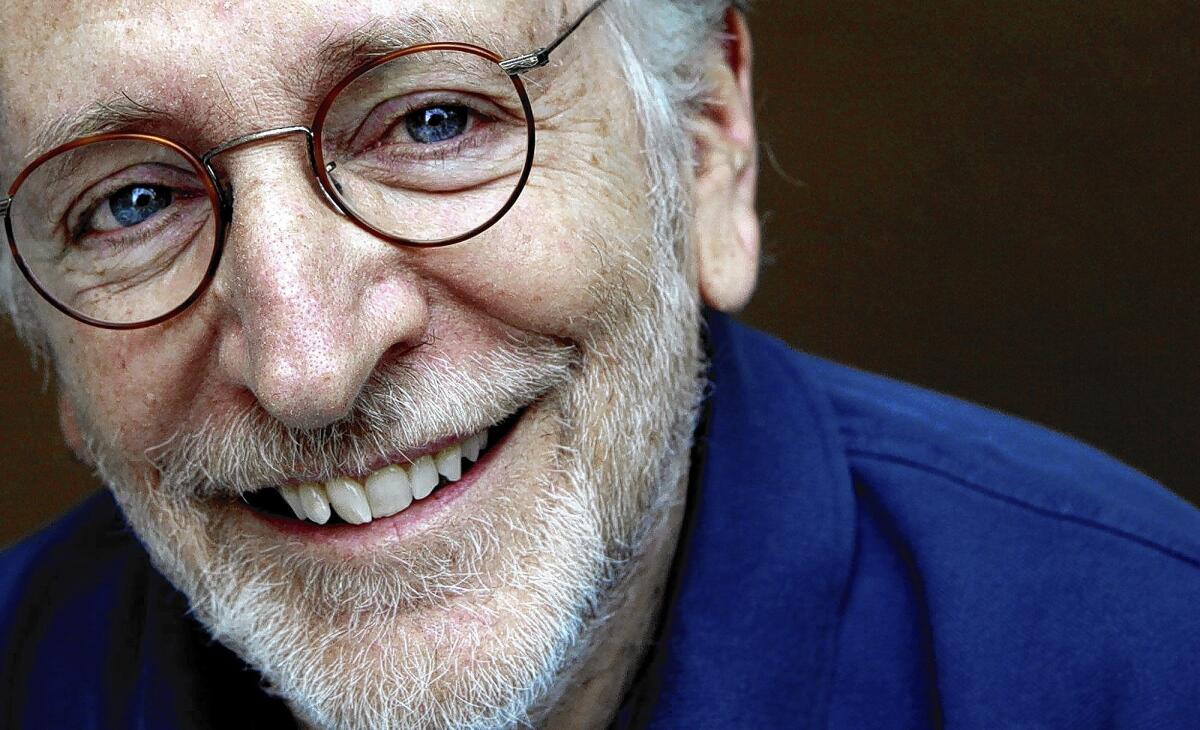Phil Alden Robinson finally finds his dream script

It’s been 25 years since the treasured baseball fantasy “Field of Dreams” premiered and the phrase, “If you build it, he will come” became part of the pop cultural lexicon.
The Kevin Costner blockbuster put writer-director Phil Alden Robinson on the map, earning him an Oscar nomination for adapted screenplay and a Directors Guild of America award nomination.
But in the past quarter of a century, Robinson has directed only three features: the 1992 caper comedy “Sneakers,” the 2002 Tom Clancy thriller “The Sum of All Fears” and the low-budget indie “The Angriest Man in Brooklyn,” which opens in theaters and arrives on VOD this Friday.
Robinson has been so selective, he said, because he doesn’t want a film just to have a job. Filmmaking, he noted, “takes a lot out of you, and it takes time out of your life. It needs to be something that’s going to feel like that was a good use of time.”
He has found success on television doing a series of “Nightline” documentaries, including the Emmy-nominated “Sarajevo Spring” (1997) as well the 2000 TV movie “Freedom Song,” an award-winning TNT production about the civil rights struggle in Mississippi. He and fellow directors of HBO’s 2001 World War II miniseries “Band of Brothers” collectively won an Emmy for their work.
Robinson said he’s been incredibly busy writing and trying to get projects greenlighted. He married Paulette Bartlett in 2009 and has been active with the academy’s Board of Governors. He also has been sifting through scripts in hopes of finding one that would speak to him. By the third page of “The Angriest Man in Brooklyn,” Robinson knew that Daniel Taplitz’s script was something special.
“This one spoke to me on a lot of different levels,” said the soft-spoken Robinson at the Four Seasons lounge. “By Page 3 or 4, I realized I had already laughed and cried. I kept saying, ‘Please let the rest of it be as good.’ When it was over, I remember thinking this would be a great movie. I want to see this movie.”
The comedy-drama stars Robin Williams as the title character, a combustible attorney named Henry who learns from a young doctor (Mila Kunis) that he is dying of a brain aneurysm. Breaking into a terrifying rage, he demands that she tell him how long he has to live. Exasperated and dealing with her own demons, she lies and tells him that he will die in 90 minutes. Melissa Leo, Peter Dinklage and Hamish Linklater also star.
Anger has been on Robinson’s mind of late. “I have been thinking about how much anger there is in this culture,” he said. “We live in angry times, and it bothers me because I think it’s ruining our public discourse. I think it’s ruining politics.”
The film, he said, is not just about one angry man.
“It’s about a whole bunch of characters who have adapted defense mechanisms which are no longer working for them,” Robinson said. “For Henry it’s anger, for Mila’s character it’s pills, for Melissa Leo’s character it’s infidelity and for Peter Dinklage it’s religion.”
Shot on location in New York in just 27 days, Robinson had been warned of how hard it is to shoot in the streets of the city. “Someone said the trick is accept that and just go with the flow,” he said. “I had a blast.”
He also had a blast working with Williams, whom he described as having the best work ethic of any actor. “When he comes on the set, he is prepared every second of that day to do 100% of what he can do,” Robinson said. “He accepts nothing less.”
Leo plays Henry’s wife, who is having an affair with an elderly neighbor. She said working with Robinson was one of the delights of her career.
“I have had amazing, amazing directors and people I have worked with, but the pleasantness of being on the set with Phil was unequal,” she said. “He is a really a good human, which adds to the depth to the story.”
“Angriest Man in Brooklyn,” Robinson said, ultimately asks the question that so many of us avoid every day in our lives: “Our time is finite, and what are we going to do with the time remaining?”
Robinson admitted the film caused him to do his own bit of soul searching. “When I finished the picture I said, OK — what are the things I have been putting off? I am sure I have a very long list if I really set out and thought about it.”
He remembered two unfinished screenplays that he had been working on for 10 years but had stowed in a drawer. “I kicked myself in the butt,” he said, “and finished them.”
More to Read
Only good movies
Get the Indie Focus newsletter, Mark Olsen's weekly guide to the world of cinema.
You may occasionally receive promotional content from the Los Angeles Times.











